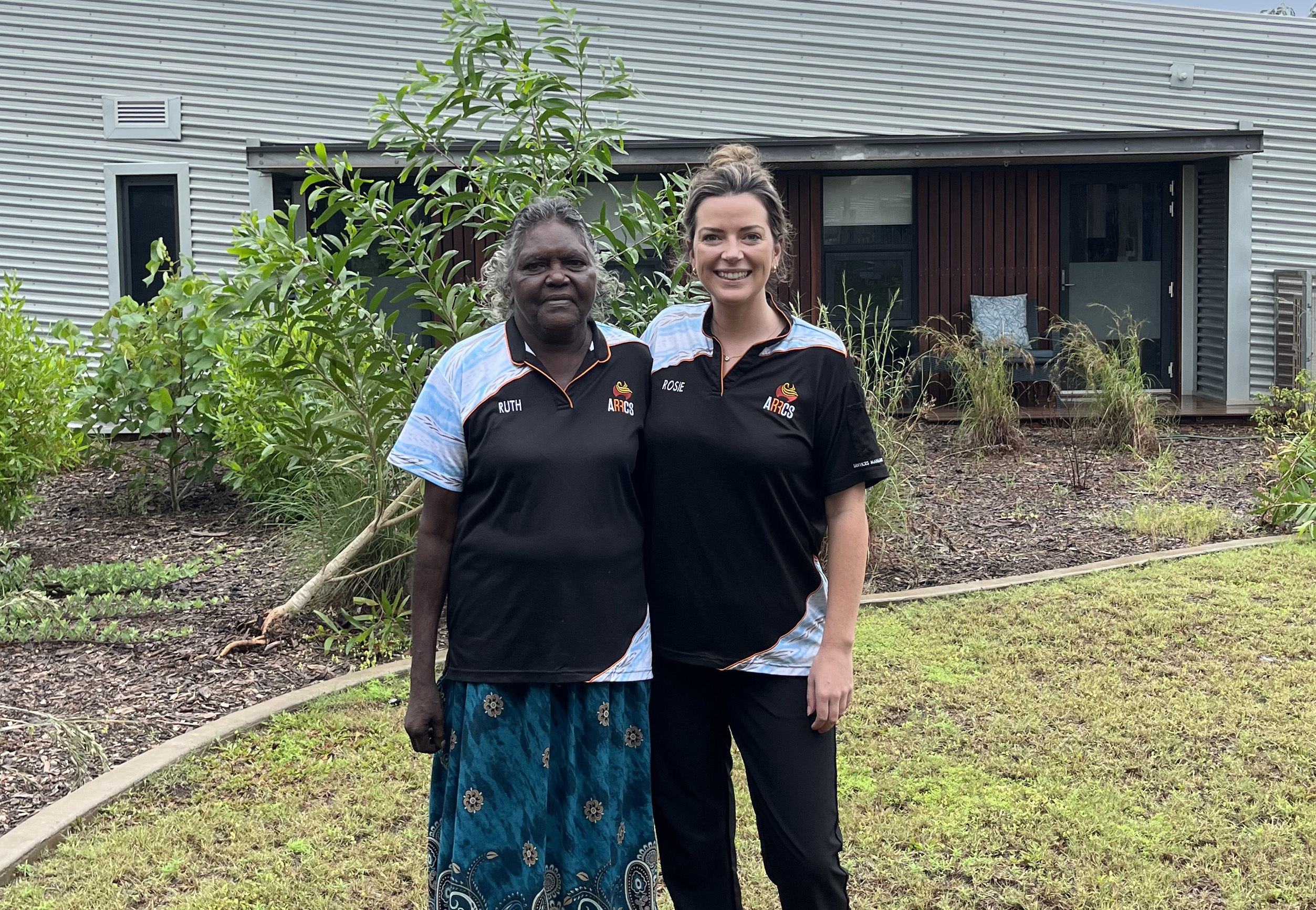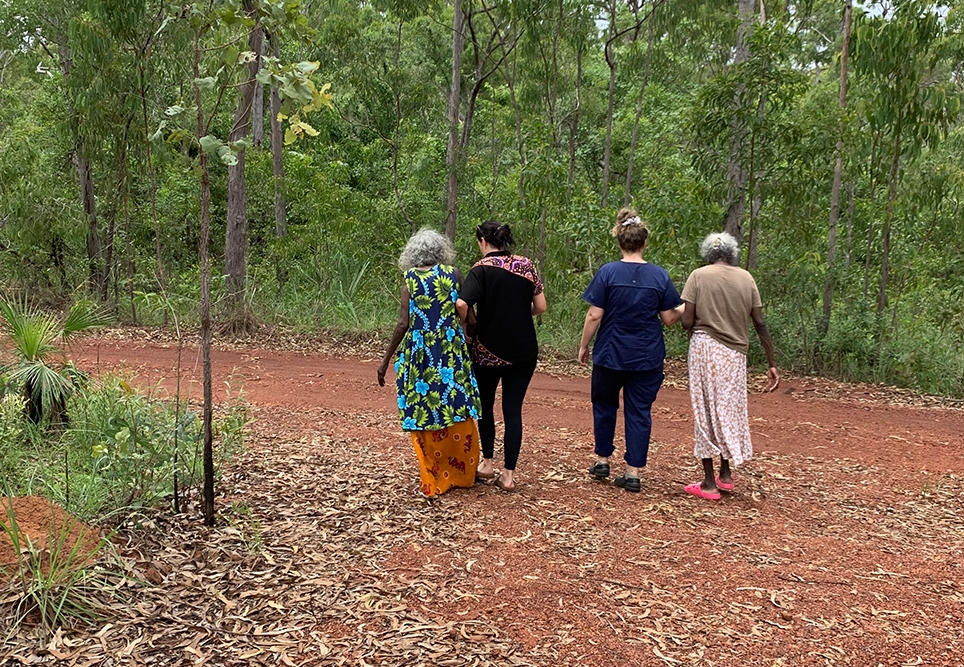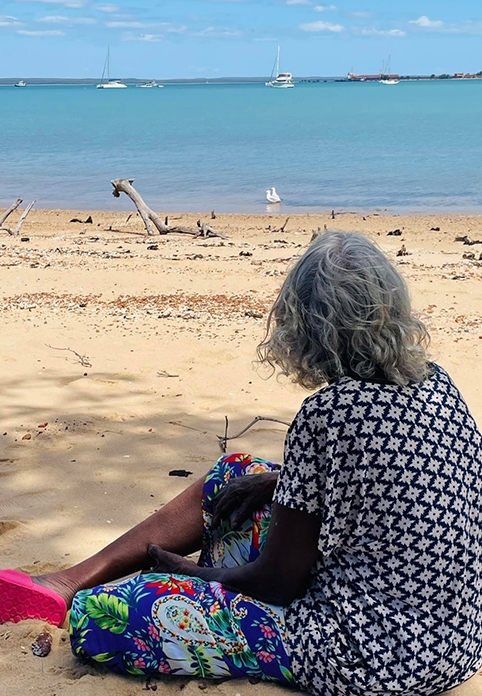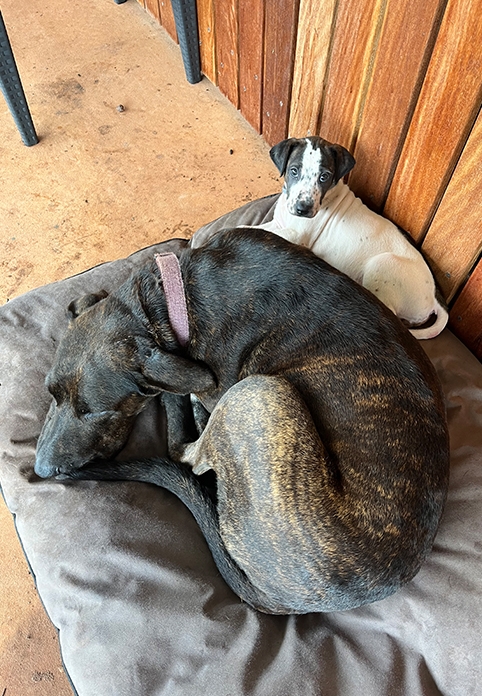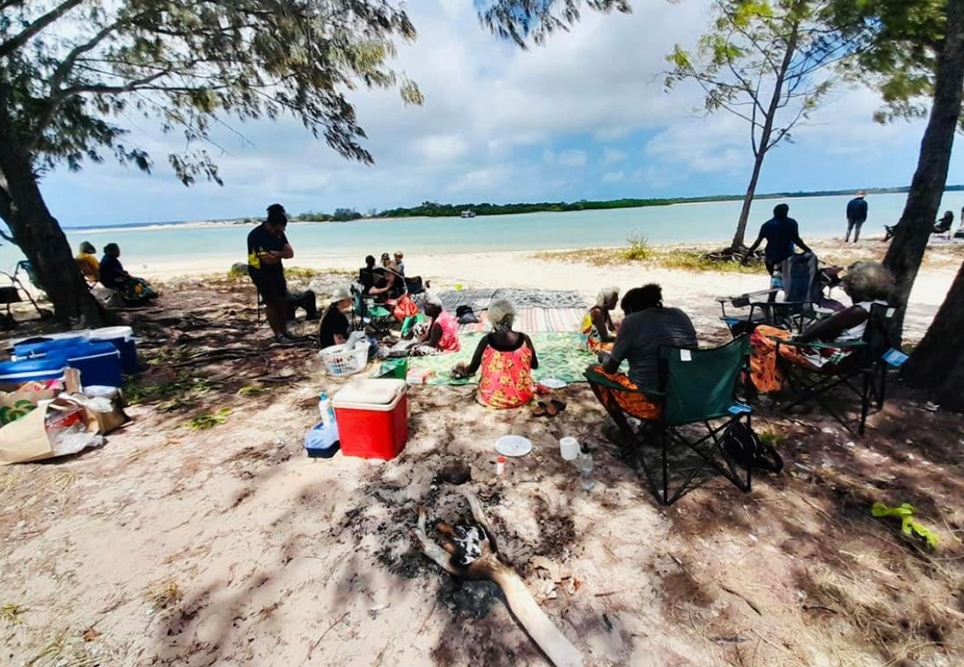This site may not work properly using older versions of Edge and Internet Explorer. You should upgrade your browser to the latest Chrome, Firefox, Edge, Safari, or any other modern browser of your choice. Click here for more information.
Your Stories
This is where we tell your stories, cover topical issues and promote meaningful initiatives.
Culture the focus at Yutjuwala Djiwarr Aged Care Centre
“You won’t find our residents sitting blankly looking at a television screen. They’re always outdoors, catching the breeze.” That’s Registered Nurse Rosie Breen, Service Manager at the Yutjuwala Djiwarr aged care centre in Nhulunbuy in north-east Arnhem Land. Yutjuwala Djiwarr translates roughly to ‘Little Heaven’. Rosie, who has lived in Nhulunbuy for two years, was attracted to the role at the centre because of the strong cultural focus from the beginning of the planning process onwards.
Working alongside Rosie is Ruth Mununggurr, who has been an Aboriginal Health Worker for 32 years.
Ruth had plans to be involved in a self-management project in her own homeland at Bukudal with her family – but was drawn to take on the role as a Cultural Advisor at the centre to help the entire community.
“When planning started for this aged care centre we went around talking to all the people who would be involved in each stage – the architecture, facilities and services,” says Ruth.
“We talked to them about the best way and the best building and what everything would look like.”
Now that the centre is open, the main focus for Rosie and Ruth each day is to personalise the care provided to the residents and ensure it is culturally appropriate.
“The Yolŋu workforce is indispensable in this regard,” says Rosie.
“They act as interpreters and translators, making the residents feel comfortable to ask for what they want, and explaining their needs. Any nationality would feel the same way.”
People in the community are so happy about the centre, because it means they are closer to Elders, says Ruth.
“The cost to go and visit in Darwin, to fly there to visit, it’s too much for families,” she says.
“It’s best for old folk to be in the community. Easier for the family to visit and take them around in the bus, and to be around family. You should see the smiles on their faces when they can go on the bus for an outing.
“And at the centre, there is an open door for family to come and spend time with their elderly family members.”
Rosie says that one lady at the centre had previously been in care in Darwin for two years.
“Someone flagged this to us,” she says.
“She hadn’t stayed with her son for two years. We’ve now brought her here and whenever her son comes, her eyes light up.”
There’s no area, not one detail that hasn’t been explored to help make residents feel at home at Yutjuwala Djiwarr.
“The gardening, for example, is done by Aboriginal men employed by the Arnhem Land Progress Aboriginal Corporation (ALPA),” Rosie says.
“These men also go fishing so that the residents can get the fish and shellfish they ate growing up. The garden is starting to get established, with trees and plants that provide shade for the residents to sit outside, and we are starting to get fruit and other foods and bush medicines.”
The art centre is another favourite with the residents, says Ruth.
“We have Indigenous artists and entertainers who work closely with the art centre. Activities include weaving and painting. It’s so good. They have memories of these activities and they are so happy to go to those memories. And I’ve got to say, Rosie has long straight hair – which is always in demand for the art brushes…”
Then there’s Lolly, the resident dog who has recently been joined by puppy Yapa. Yapa is Yolŋu for sister.
With 32 beds and a palliative care unit, the number of residents fluctuates markedly as there is an emphasis on helping them to visit their families and to go to their homelands for a weekend or a few weeks.
The Yolŋu workforce is particularly crucial in the palliative care unit, working with the family to make sure the correct spokespeople are consulted.
There is a ceremony place outside for when the palliative care patient passes, and a smoking ceremony is conducted to prepare for a new resident in that unit.
The centre was a vision of the Yolŋu Elders in Arnhem Land to prevent their ageing family members needing to travel hundreds of kilometres to cities like Darwin for end-of-life care, and to provide culturally sensitive palliative and aged care services.
The connection to Country began with the timber used in construction, sourced from the Gumatj Mill, travelling less than 50km from its source. The attention to cultural needs is in every aspect of the design. Each bedroom provides access to the outdoors with sheltered verandas, suitable for resting, and visiting family.
As Rosie and Ruth say: “We want everyone to feel at home in this home.”
If you would like to share your own stories of working in remote health, get in touch by submitting an enquiry.
